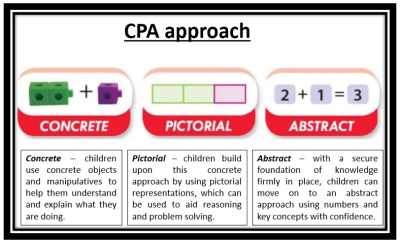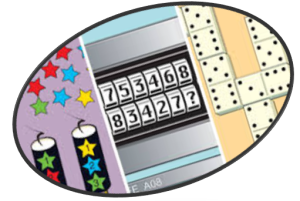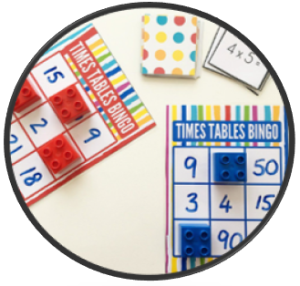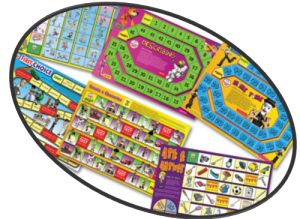What does Maths look like at AHPS (Intent)
At Avanti House Primary School, we are committed to nurturing enthusiastic, creative, and confident mathematicians. Our inspiring maths curriculum is designed to spark curiosity and develop key skills like problem-solving, resilience, and reflection, supporting growth across all areas of learning. We believe every child should feel both challenged and supported on their learning journey, from Early Years to Year 6. Our approach fosters courage, respect, and self-discipline as students build fluency in mathematics and deepen their understanding of connections between concepts.
We encourage children to think critically, reason logically, and express ideas clearly, ensuring they approach maths with curiosity and confidence. At Avanti House, we view mistakes as valuable learning opportunities and create a safe, supportive environment where students are empowered to explore and discuss ideas with empathy. Through collaborative group work and discussions, children develop the ability to articulate their thinking and reflect on their learning, building integrity and making meaningful connections to the world around them.
How do we do this? (Implementation)
In our maths lessons, we focus on building strong foundations with key vocabulary and essential skills like place value and the four operations. We use a variety of activities to encourage reasoning, allowing children to apply and deepen their understanding. Lessons are designed to cover all key topics, using resources like White Rose Maths and Deepening Understanding to support learning.
We also value the importance of speaking and listening, with daily ‘Talk Tasks’ to encourage conversation around maths. Our lessons balance fluency, problem-solving, and reasoning, and we make sure to revisit prior learning to reinforce concepts.
We use different teaching methods, such as Concrete, Pictorial, and Abstract, to help children grasp mathematical ideas and make connections. Misconception slides help address common errors, and learning is tailored to meet the needs of every child. Weekly real-life investigations inspire children to apply their maths skills, and homework supports ongoing learning.
What difference does it make? (Impact)
By providing engaging and meaningful maths lessons, children at Avanti House Primary learn to explain their thinking clearly and make connections across different areas of maths, seeing its relevance in both the classroom and the real world. Our lessons incorporate a variety of resources and representations of concepts, helping children understand ideas from different perspectives. We track each child’s progress to ensure they are supported and achieving their best, providing tailored support where needed.
In addition to academic growth, we focus on developing character virtues, encouraging reflection on personal development. This approach nurtures the ‘whole child,’ fostering not only academic skills but also the attitudes and values that will help them succeed in all areas of life. At Avanti House, we are committed to helping every child thrive in maths and beyond, preparing them for success now and in the future.
Make Maths Fun with Games
Use board games, card games, or apps that involve numbers and basic arithmetic. Games like “Math Bingo,” “Uno,” or “Dominoes” can encourage math practice while being enjoyable.
Incorporate Maths into Daily Activities
Use everyday situations to teach math, such as cooking (measuring ingredients), shopping (calculating prices or comparing amounts), or estimating distances (when traveling).
Practice Times Tables
Help children memorize their times tables with songs, rhymes, or flashcards. Use repetition and reward progress to keep them motivated.
Use Puzzles and Brain Teasers
Introduce number puzzles, Sudoku, or logic games to build problem-solving skills. These activities challenge their thinking and improve their ability to reason mathematically.
Create a Math-rich Environment
Label objects around the house with their shapes, sizes, or quantities. For example, mark the sides of furniture with measurements or create a wall chart of numbers and addition facts.
Ask Guiding Questions
Instead of simply giving answers, ask open-ended questions that encourage thinking, such as, “How would you solve this problem?” or “What could you do next to make it easier?”
Use Technology and Educational Apps
Use online tools or apps that offer interactive math exercises and games. Many platforms tailor activities to a child’s learning level, from simple addition to complex fractions.
Use Physical Objects for Visualization
Use items like coins, blocks, or buttons to demonstrate math concepts. Seeing and touching objects helps children better understand abstract ideas such as addition or subtraction.
Set a Regular Math Routine
Dedicate a few minutes each day to math practice. Whether it’s doing homework together or a math-related activity, consistency helps reinforce concepts and keeps children engaged.
Encourage a Growth Mindset
Promote a positive attitude by praising effort and perseverance. Remind children that mistakes are part of learning, helping them build resilience and confidence in their math abilities.
Maths Curriculum – Teaching for Mastery
At Avanti House Primary School we teach Maths based on the National Curriculum, using the Maths Mastery scheme ‘White Rose’. The Mastery approach is a research-driven teaching and learning method that meets the goals of the National Curriculum. What does it mean in practice?
Mastery Approach
- Puts numbers first because confidence with numbers is the first step to competency in the curriculum as a whole.
- Puts depth before breadth, reinforcing knowledge again and again.
- Encourages collaboration, with children able to progress through the schemes as a group, supporting each other as they learn.
- Focuses on fluency, reasoning and problem solving, giving children the skills they need to become competent mathematicians.
What does it mean to master something?
- I know how to do it
- It becomes automatic and I don’t need to think about it, e.g. driving a car
- I’m really good at doing it
- I can show someone else how to do it.
“In mathematics, you know you’ve mastered something when you can apply it to a totally new problem in an unfamiliar situations.” Dr. Helen Drury, Director of Mathematics Mastery
Useful Resources
Avanti House Primary School Calculation Policy
White Rose Scheme – video links
Teaching Methods
Year 1 – Addition Calculations in Action
.
.
Year 1 – Subtraction Calculations in Action
The video below shows how using bar modelling and counters can be used to work out different types of subtraction calculations.
Year 1 – Multiplication Calculations in Action
Year 1 – Division Calculations in Action
Year 2 – Multiplication Calculations in Action
Year 2 – Division Calculations in Action
What is Bar Modelling?
The video below helps you to understand how bar modelling is used to represent problems so that children can then being to solve them.
How to teach Number Bonds?
The video below shows the strategies which can be used to teach all different types of number bonds. For example, each counter can represent 10 so you can work out number bonds to 100. The possibilities are endless!





